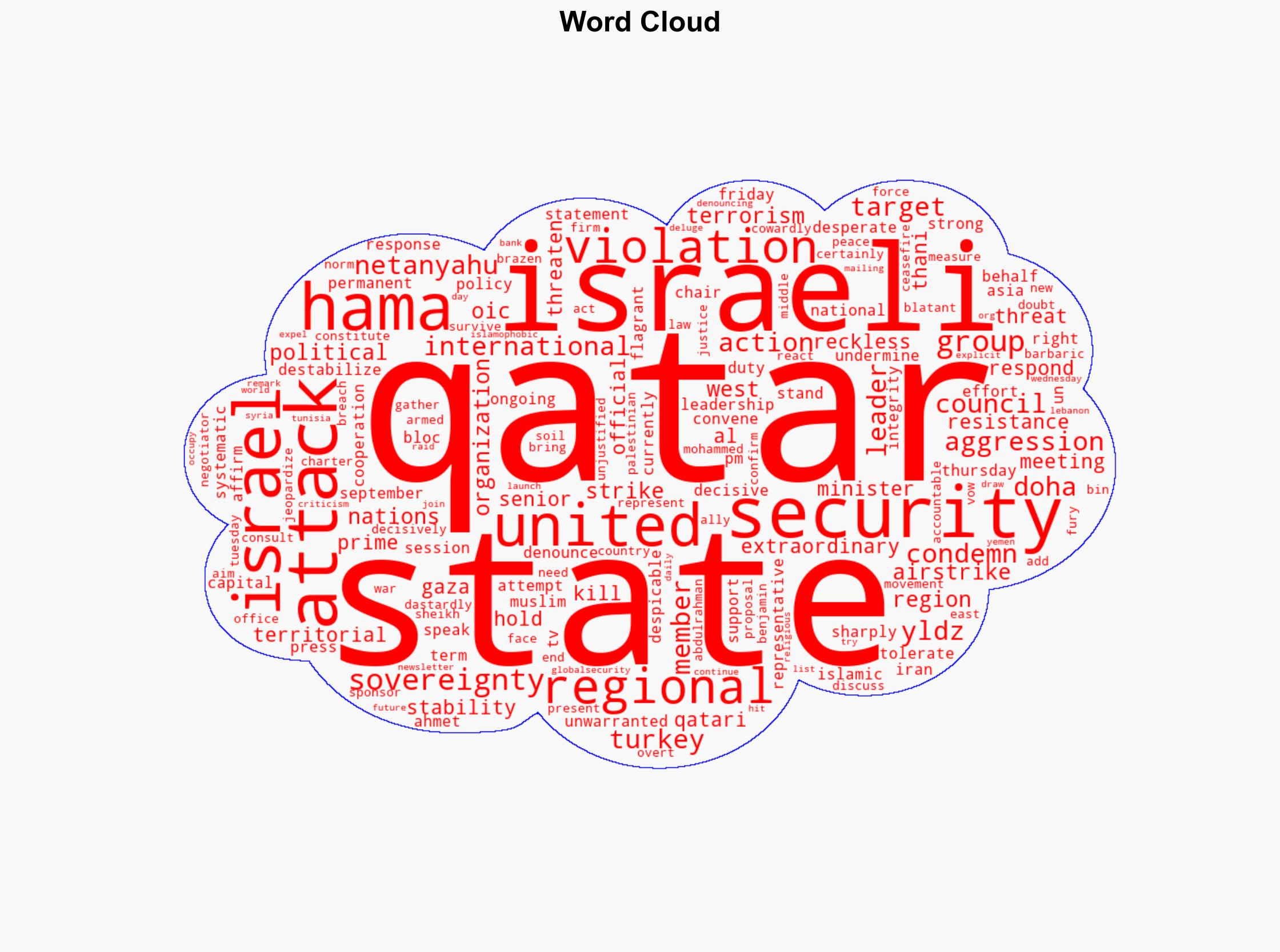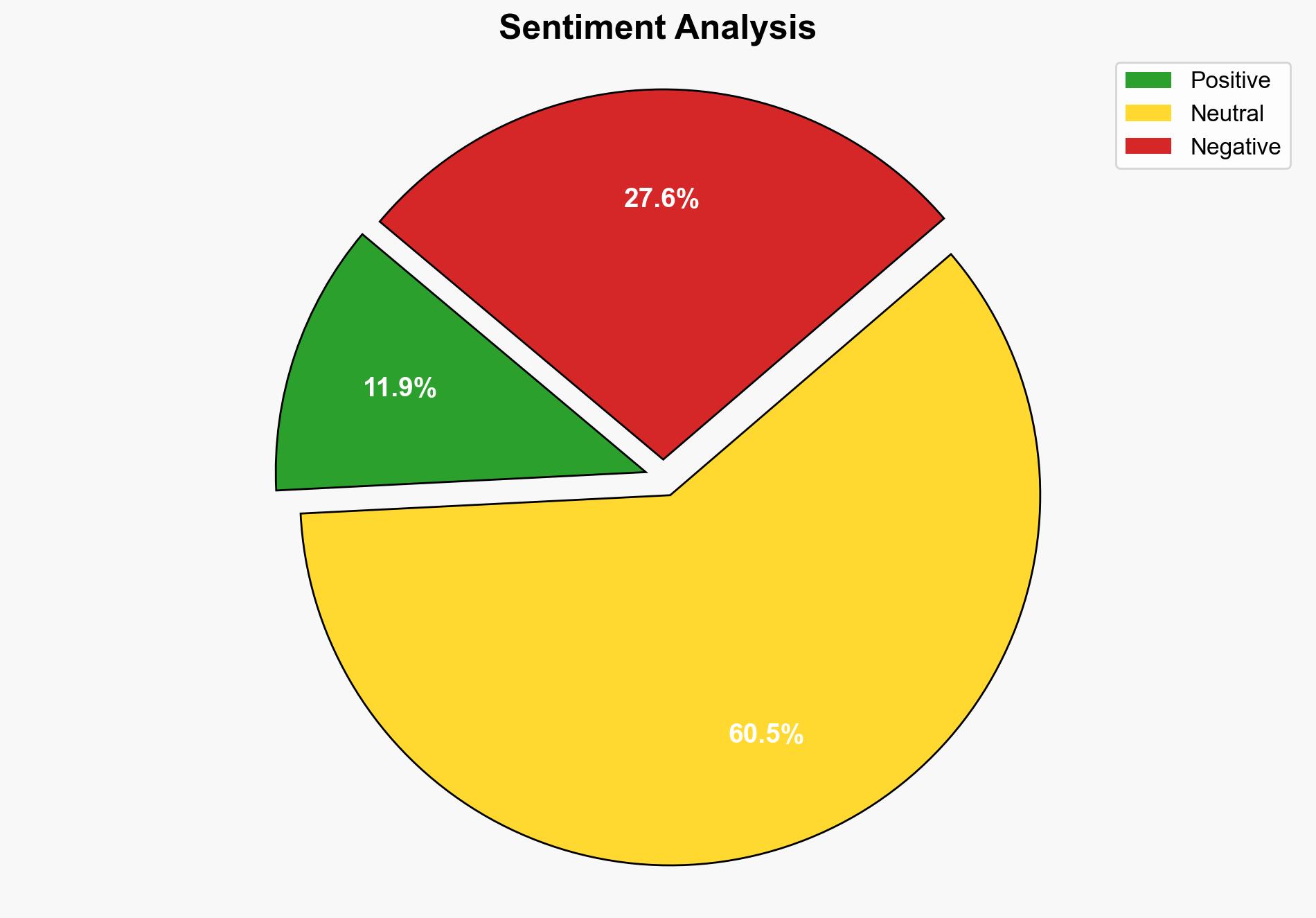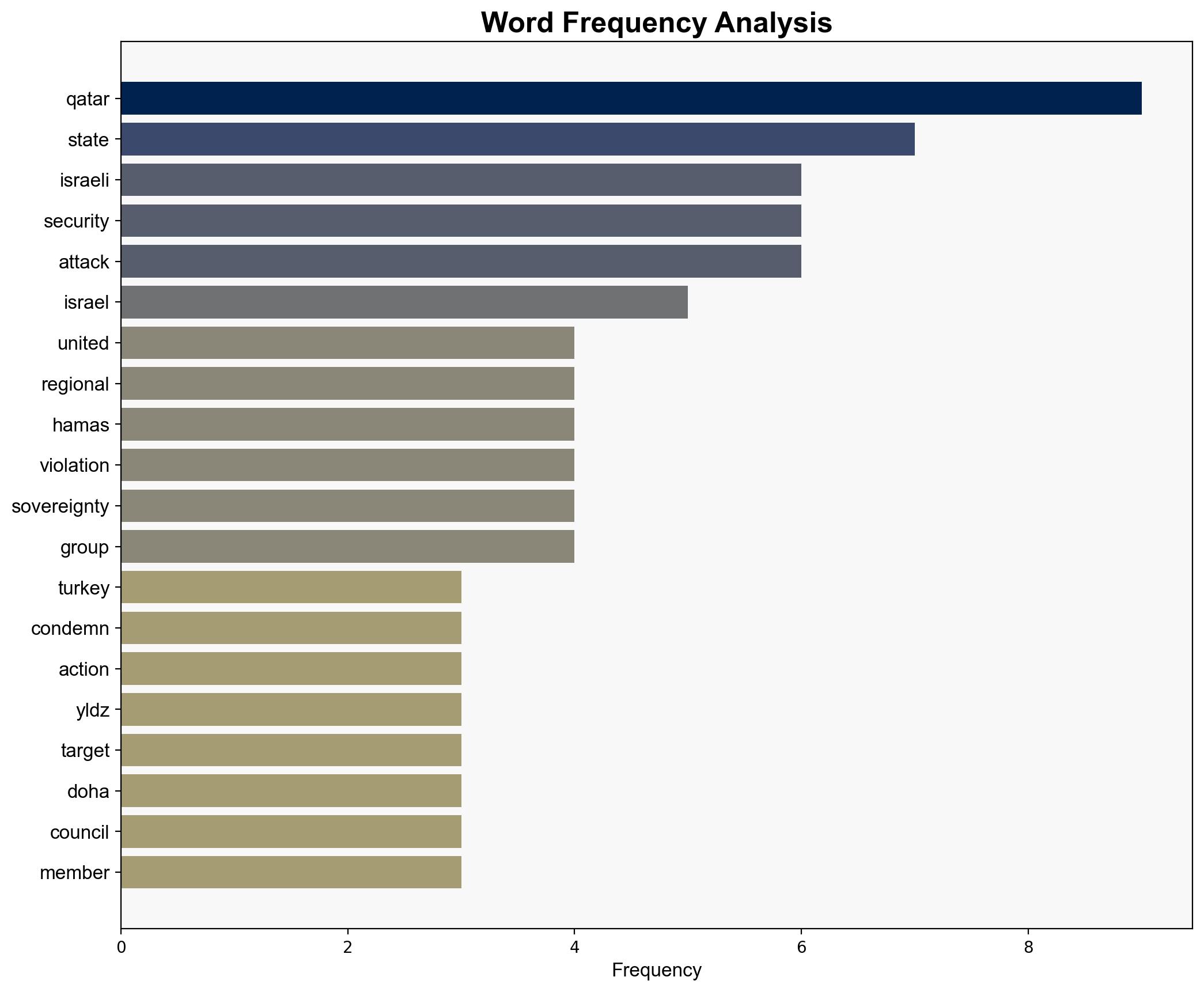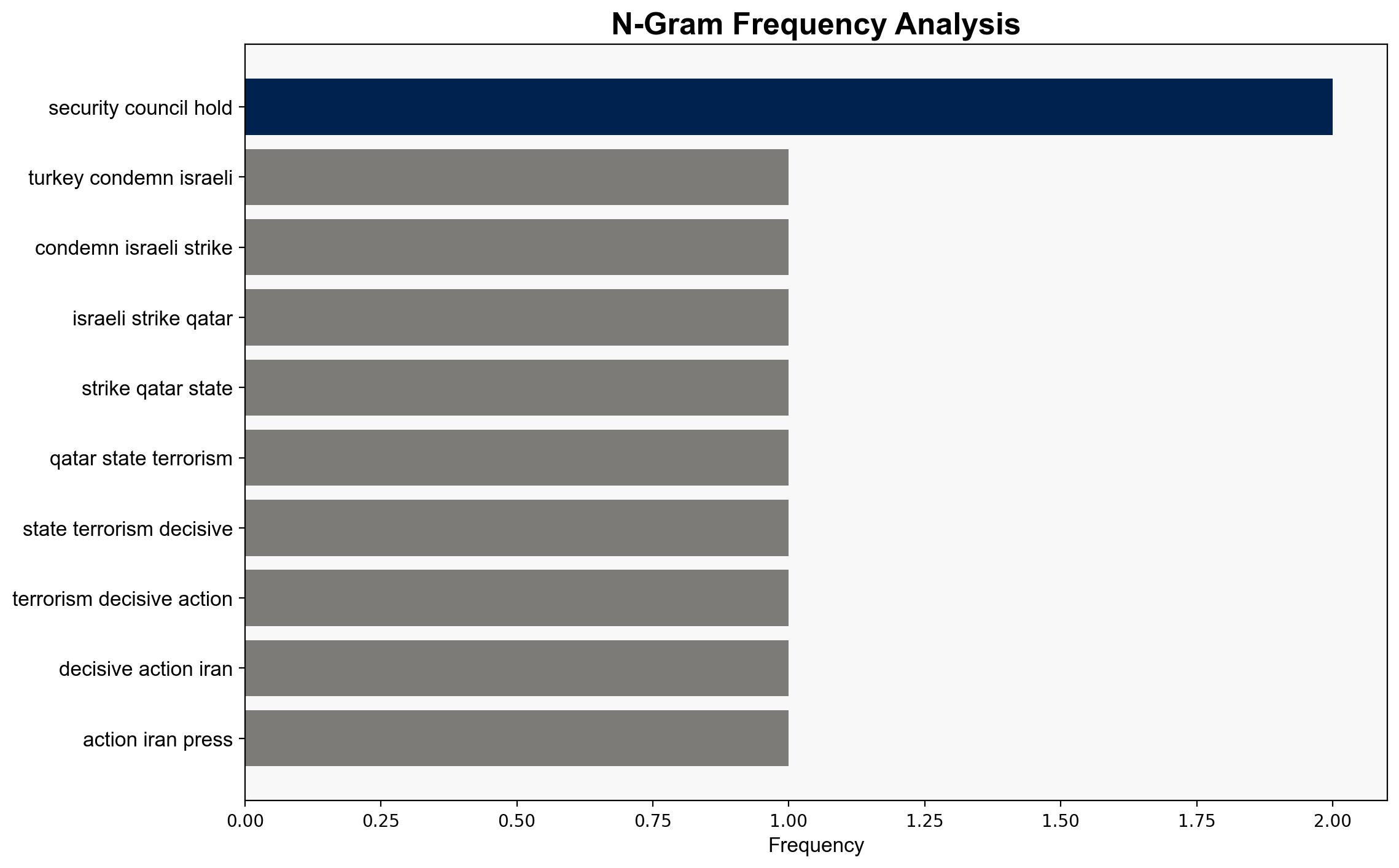Turkey condemns Israeli strike in Qatar as ‘state terrorism’ calls for decisive action – Globalsecurity.org
Published on: 2025-09-13
Intelligence Report: Turkey condemns Israeli strike in Qatar as ‘state terrorism’ calls for decisive action – Globalsecurity.org
1. BLUF (Bottom Line Up Front)
The most supported hypothesis is that Turkey’s condemnation of the Israeli strike in Qatar is a strategic move to strengthen its leadership position within the Organization of Islamic Cooperation (OIC) and to rally regional support against perceived Israeli aggression. Confidence level: Moderate. Recommended action: Monitor Turkey’s diplomatic engagements and military posturing in the region, while assessing potential shifts in alliances and regional stability.
2. Competing Hypotheses
1. **Hypothesis 1**: Turkey’s condemnation is primarily aimed at consolidating its leadership role within the OIC and positioning itself as a defender of Muslim nations against Israeli actions, thereby enhancing its regional influence.
2. **Hypothesis 2**: Turkey’s response is driven by genuine concern over regional stability and the potential for Israeli actions to escalate into broader conflict, threatening Turkey’s national security interests.
Using ACH 2.0, Hypothesis 1 is better supported due to Turkey’s historical pattern of leveraging regional conflicts to assert its influence and the strategic timing of the condemnation aligning with its leadership of the OIC.
3. Key Assumptions and Red Flags
– **Assumptions**: Turkey’s actions are assumed to be strategically motivated rather than purely reactionary. The OIC’s support is assumed to be cohesive and influential.
– **Red Flags**: Lack of direct evidence linking Turkey’s condemnation to concrete actions beyond rhetoric. Potential bias in interpreting Turkey’s motives as purely strategic without considering genuine security concerns.
4. Implications and Strategic Risks
The situation could lead to increased tensions between Israel and Muslim-majority countries, potentially destabilizing the region further. Economic implications include disruptions in regional trade and energy markets. Cybersecurity threats may arise as state and non-state actors exploit the situation. Geopolitically, the risk of military escalation remains significant, with potential involvement from other regional powers such as Iran.
5. Recommendations and Outlook
- Enhance diplomatic channels to de-escalate tensions and promote dialogue between Israel and affected parties.
- Prepare for potential economic disruptions by securing alternative trade routes and energy supplies.
- Monitor cyber activities for increased threats targeting regional infrastructure.
- Scenario projections:
- Best Case: Diplomatic resolution leads to reduced tensions and stabilization.
- Worst Case: Escalation into broader regional conflict involving multiple states.
- Most Likely: Continued diplomatic tensions with sporadic incidents of violence.
6. Key Individuals and Entities
– Ahmet Yıldız
– Sheikh Mohammed bin Abdulrahman Al Thani
– Benjamin Netanyahu
7. Thematic Tags
national security threats, regional stability, diplomatic strategy, geopolitical tensions





